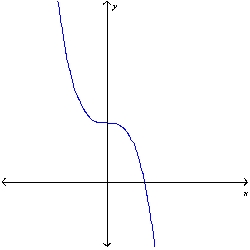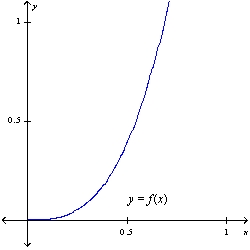Deck 3: Extension B: Differentiation Rules
Question
Question
Question
Question
Question
Question
Question
Question
Question
Question
Question

Unlock Deck
Sign up to unlock the cards in this deck!
Unlock Deck
Unlock Deck
1/11
Play
Full screen (f)
Deck 3: Extension B: Differentiation Rules
1
Solve each equation for x.
(a) (b)
(b) 
(a)
 (b)
(b) 
 ,
, 
2
Use the laws of logarithms to write the expression as the logarithm of a single quantity. 4 ln 5 -  ln (x + 6)
ln (x + 6)
A)
B)
C)
D)
 ln (x + 6)
ln (x + 6)A)

B)

C)

D)


3
Determine whether f is one-to-one. 

Yes
4
Use the laws of logarithms to expand the expression. ln ![<strong>Use the laws of logarithms to expand the expression. ln </strong> A) ln B) ln (x + 5) - ln (x - 6) C) ln [(x + 5)(x - 6)] D) ln](https://storage.examlex.com/TB6897/11ea8a3b_b6da_b026_9fff_2dc20316e02c_TB6897_11.jpg)
A)![<strong>Use the laws of logarithms to expand the expression. ln </strong> A) ln B) ln (x + 5) - ln (x - 6) C) ln [(x + 5)(x - 6)] D) ln](https://storage.examlex.com/TB6897/11ea8a3b_b6da_b027_9fff_61707c1c0679_TB6897_11.jpg) ln
ln ![<strong>Use the laws of logarithms to expand the expression. ln </strong> A) ln B) ln (x + 5) - ln (x - 6) C) ln [(x + 5)(x - 6)] D) ln](https://storage.examlex.com/TB6897/11ea8a3b_b6da_b028_9fff_f719fa1ef153_TB6897_11.jpg)
B)![<strong>Use the laws of logarithms to expand the expression. ln </strong> A) ln B) ln (x + 5) - ln (x - 6) C) ln [(x + 5)(x - 6)] D) ln](https://storage.examlex.com/TB6897/11ea8a3b_b6da_d739_9fff_fd18a346d1db_TB6897_11.jpg) ln (x + 5) -
ln (x + 5) - ![<strong>Use the laws of logarithms to expand the expression. ln </strong> A) ln B) ln (x + 5) - ln (x - 6) C) ln [(x + 5)(x - 6)] D) ln](https://storage.examlex.com/TB6897/11ea8a3b_b6da_d73a_9fff_9311b604d667_TB6897_11.jpg) ln (x - 6)
ln (x - 6)
C)![<strong>Use the laws of logarithms to expand the expression. ln </strong> A) ln B) ln (x + 5) - ln (x - 6) C) ln [(x + 5)(x - 6)] D) ln](https://storage.examlex.com/TB6897/11ea8a3b_b6da_d73b_9fff_5ba0f58b5d04_TB6897_11.jpg) ln [(x + 5)(x - 6)]
ln [(x + 5)(x - 6)]
D)![<strong>Use the laws of logarithms to expand the expression. ln </strong> A) ln B) ln (x + 5) - ln (x - 6) C) ln [(x + 5)(x - 6)] D) ln](https://storage.examlex.com/TB6897/11ea8a3b_b6da_d73c_9fff_3ba027f9242e_TB6897_11.jpg) ln
ln ![<strong>Use the laws of logarithms to expand the expression. ln </strong> A) ln B) ln (x + 5) - ln (x - 6) C) ln [(x + 5)(x - 6)] D) ln](https://storage.examlex.com/TB6897/11ea8a3b_b6da_d73d_9fff_f1f2aa5da5d8_TB6897_11.jpg)
![<strong>Use the laws of logarithms to expand the expression. ln </strong> A) ln B) ln (x + 5) - ln (x - 6) C) ln [(x + 5)(x - 6)] D) ln](https://storage.examlex.com/TB6897/11ea8a3b_b6da_b026_9fff_2dc20316e02c_TB6897_11.jpg)
A)
![<strong>Use the laws of logarithms to expand the expression. ln </strong> A) ln B) ln (x + 5) - ln (x - 6) C) ln [(x + 5)(x - 6)] D) ln](https://storage.examlex.com/TB6897/11ea8a3b_b6da_b027_9fff_61707c1c0679_TB6897_11.jpg) ln
ln ![<strong>Use the laws of logarithms to expand the expression. ln </strong> A) ln B) ln (x + 5) - ln (x - 6) C) ln [(x + 5)(x - 6)] D) ln](https://storage.examlex.com/TB6897/11ea8a3b_b6da_b028_9fff_f719fa1ef153_TB6897_11.jpg)
B)
![<strong>Use the laws of logarithms to expand the expression. ln </strong> A) ln B) ln (x + 5) - ln (x - 6) C) ln [(x + 5)(x - 6)] D) ln](https://storage.examlex.com/TB6897/11ea8a3b_b6da_d739_9fff_fd18a346d1db_TB6897_11.jpg) ln (x + 5) -
ln (x + 5) - ![<strong>Use the laws of logarithms to expand the expression. ln </strong> A) ln B) ln (x + 5) - ln (x - 6) C) ln [(x + 5)(x - 6)] D) ln](https://storage.examlex.com/TB6897/11ea8a3b_b6da_d73a_9fff_9311b604d667_TB6897_11.jpg) ln (x - 6)
ln (x - 6)C)
![<strong>Use the laws of logarithms to expand the expression. ln </strong> A) ln B) ln (x + 5) - ln (x - 6) C) ln [(x + 5)(x - 6)] D) ln](https://storage.examlex.com/TB6897/11ea8a3b_b6da_d73b_9fff_5ba0f58b5d04_TB6897_11.jpg) ln [(x + 5)(x - 6)]
ln [(x + 5)(x - 6)]D)
![<strong>Use the laws of logarithms to expand the expression. ln </strong> A) ln B) ln (x + 5) - ln (x - 6) C) ln [(x + 5)(x - 6)] D) ln](https://storage.examlex.com/TB6897/11ea8a3b_b6da_d73c_9fff_3ba027f9242e_TB6897_11.jpg) ln
ln ![<strong>Use the laws of logarithms to expand the expression. ln </strong> A) ln B) ln (x + 5) - ln (x - 6) C) ln [(x + 5)(x - 6)] D) ln](https://storage.examlex.com/TB6897/11ea8a3b_b6da_d73d_9fff_f1f2aa5da5d8_TB6897_11.jpg)

Unlock Deck
Unlock for access to all 11 flashcards in this deck.
Unlock Deck
k this deck
5
The graph of f is given.Sketch the graph of f-1 on the same set of axes. 


Unlock Deck
Unlock for access to all 11 flashcards in this deck.
Unlock Deck
k this deck
6
When a camera flash goes off,the batteries immediately begin to recharge the flash's capacitor,which stores electric charge given by  (The maximum charge capacity
(The maximum charge capacity  is and t is measured in seconds.)How long does it take to recharge the capacitor to 90% of capacity if
is and t is measured in seconds.)How long does it take to recharge the capacitor to 90% of capacity if  ?
?
A) seconds
seconds
B) seconds
seconds
C) seconds
seconds
D) seconds
seconds
E) seconds
seconds
 (The maximum charge capacity
(The maximum charge capacity  is and t is measured in seconds.)How long does it take to recharge the capacitor to 90% of capacity if
is and t is measured in seconds.)How long does it take to recharge the capacitor to 90% of capacity if  ?
?A)
 seconds
secondsB)
 seconds
secondsC)
 seconds
secondsD)
 seconds
secondsE)
 seconds
seconds
Unlock Deck
Unlock for access to all 11 flashcards in this deck.
Unlock Deck
k this deck
7
Solve the equation. 
A) x = ln + 2
+ 2
B) x = ln - 2
- 2
C) x = ln + 2
+ 2
D) x = ln - 2
- 2

A) x = ln
 + 2
+ 2B) x = ln
 - 2
- 2C) x = ln
 + 2
+ 2D) x = ln
 - 2
- 2
Unlock Deck
Unlock for access to all 11 flashcards in this deck.
Unlock Deck
k this deck
8
Find the exact value of the expression. 
A) 2
B) 4
C) 1
D) 5
E) 3

A) 2
B) 4
C) 1
D) 5
E) 3

Unlock Deck
Unlock for access to all 11 flashcards in this deck.
Unlock Deck
k this deck
9
Find the domain,range,and x-intercept(s)of the function. 


Unlock Deck
Unlock for access to all 11 flashcards in this deck.
Unlock Deck
k this deck
10
Suppose that the graph of  is drawn on a coordinate grid where the unit of measurement is an inch.How many miles to the right of the origin do we have to move before the height of the curve reaches 3 ft? Rounded to the nearest mile.
is drawn on a coordinate grid where the unit of measurement is an inch.How many miles to the right of the origin do we have to move before the height of the curve reaches 3 ft? Rounded to the nearest mile.
A) 13,014,952 mi
B) 13015052.4 mi
C) 5.2 mi
D) 13,015,152 mi
E) 1084587.7 mi
 is drawn on a coordinate grid where the unit of measurement is an inch.How many miles to the right of the origin do we have to move before the height of the curve reaches 3 ft? Rounded to the nearest mile.
is drawn on a coordinate grid where the unit of measurement is an inch.How many miles to the right of the origin do we have to move before the height of the curve reaches 3 ft? Rounded to the nearest mile.A) 13,014,952 mi
B) 13015052.4 mi
C) 5.2 mi
D) 13,015,152 mi
E) 1084587.7 mi

Unlock Deck
Unlock for access to all 11 flashcards in this deck.
Unlock Deck
k this deck
11
Find a formula for the inverse of the function. 
A)
B)
C)
D)
E)

A)

B)

C)

D)

E)


Unlock Deck
Unlock for access to all 11 flashcards in this deck.
Unlock Deck
k this deck


